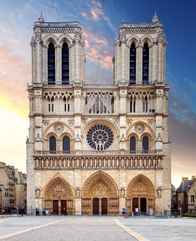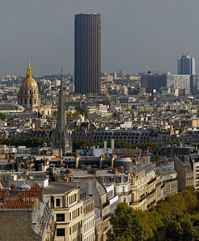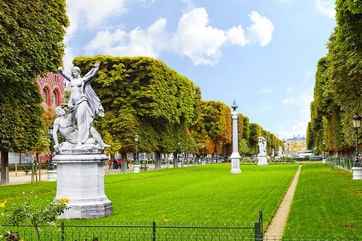


France
Europe
/
France
France - a country rich in cultural and historical significance in Europe, is a dream destination for many Vietnamese travelers. The capital, Paris, known as the "City of Light," captivates visitors with its blend of classical and modern architecture, from the iconic Eiffel Tower to the renowned Louvre Museum. France is also famous for its exquisite cuisine, magnificent châteaux in the Loire Valley, and charming villages in Provence.
The cultural festivals in France are vibrant and varied, including the Cannes Film Festival, a premier event in the film industry, and the Tour de France, the famous cycling race. Visitors can immerse themselves in the romantic atmosphere of Paris, explore the art scene, or enjoy a baguette in a cozy café. The South of France enchants with its beautiful Riviera beaches, while the Alps provide a paradise for outdoor sports enthusiasts. The Bordeaux and Champagne regions are renowned for their fine wines and stunning landscapes.

Get to Know France
Take a tour of this destination's highlights
Popular Areas in France

Travel Tips for France
What you need to know before traveling here
Practical Tips for France
Things to prepare and best way to visit
The best time to visit France depends on your preferences and the regions you plan to explore. Generally, spring (April to mid-June) and fall (September to November) are ideal, offering pleasant weather and fewer crowds. Summer (mid-June to August) is peak tourist season with warm weather but can be crowded and expensive. Keep in mind that August is a popular vacation month for the French, so many local businesses might be closed. Winter (December to March) can be chilly but is perfect for skiing in the Alps or enjoying festive Christmas markets.
Visa requirements for France depend on your nationality, the purpose of your visit, and the length of your stay. As France is part of the Schengen Area, many tourists from countries like the United States, Canada, and Australia can enter for up to 90 days within a 180-day period without a visa. For longer stays or other purposes (like work or study), you'll need to apply for the appropriate visa. Always check the latest requirements with the French embassy or consulate in your country before planning your trip. Additionally, keep an eye on updates regarding the European Travel Information and Authorization System (ETIAS), which may be implemented soon.
France offers a wealth of attractions for visitors. In Paris, the Eiffel Tower, Louvre Museum, Notre-Dame Cathedral (currently under restoration), and Champs-Élysées are iconic must-sees. Beyond Paris, consider visiting the Palace of Versailles, the D-Day beaches in Normandy, Mont Saint-Michel in Brittany, and the prehistoric Lascaux caves in the Dordogne. The French Riviera features glamorous beaches and towns like Nice and Cannes. Each region offers unique attractions, so your itinerary will depend on your interests and the length of your stay.
While many people in the tourism industry speak English, especially in major cities and tourist areas, it's helpful to know some basic French phrases. Learning greetings, please, thank you, and basic numbers can go a long way. Consider learning a few key phrases related to dietary restrictions or allergies if you have any. Always start conversations with "Bonjour" (hello) as it's considered polite. If you're struggling, politely ask "Parlez-vous anglais?" (Do you speak English?). Patience and a smile can often overcome language barriers.
Dining is an important part of French culture, and there are some etiquettes to keep in mind. Meal times are generally later than in some countries—lunch is typically from 12:30 to 2:00 PM, and dinner from 7:30 to 9:30 PM. It's polite to wait for everyone to be served and for the host to say "Bon appétit" before starting to eat. Tipping is not obligatory, as service is included in the bill, but leaving a small tip (5-10%) for good service is appreciated. Finally, remember that asking for a doggy bag is not common practice in France, although this is slowly changing.
See All Practical Tips for France

Explore France
Create your itinerary with our top picks below
Set off your journey to France
Plan smart & save big! Use discount code BISAYUK only for you

Flights

Hotels

Xperience

Get to Know France

Travel Tips for France

Explore France
More Destination Near France

























































 Facebook
Facebook Instagram
Instagram TikTok
TikTok Youtube
Youtube Telegram
Telegram
